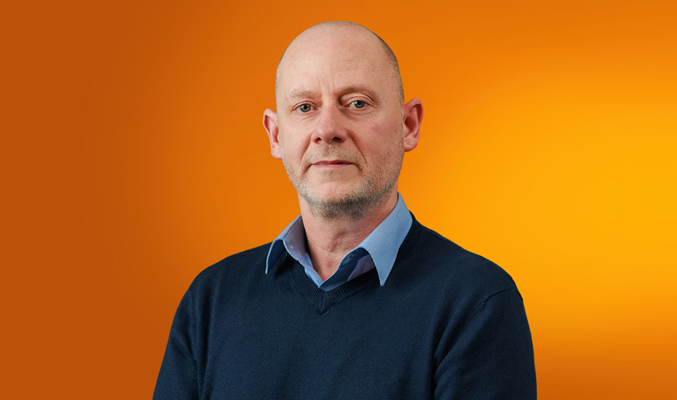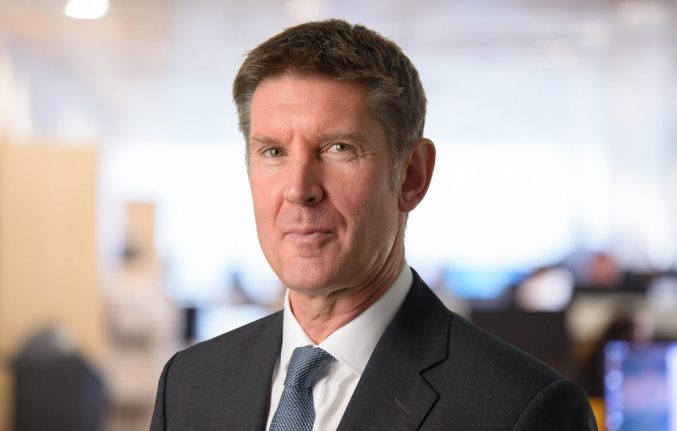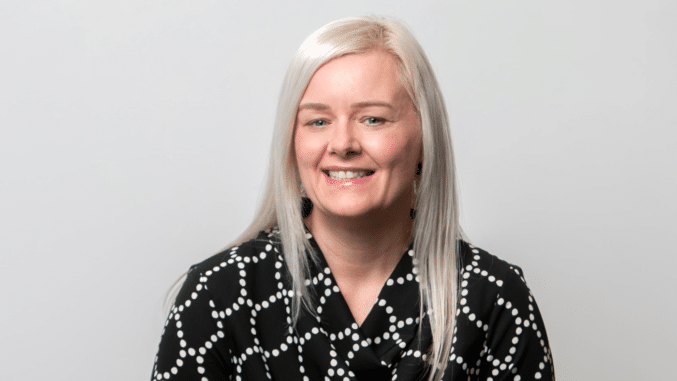‘Stop saying sorry. Be unapologetically you’
By Tony Sanchez

In our latest Women in Finance Interview, Tony Sanchez speaks to Annaliese Melvin, business development manager at Glenhawk.
Annaliese is responsible for regional product and service distribution for Glenhawk, supporting major packagers and brokers, acting as Business Development Manager for the Midlands, the South West, East of England and the northern Home Counties.
She acts within the wider sales team at Glenhawk, focused on the provision of its existing regulated and unregulated bridging products, whilst also assisting with the company’s continued growth as it looks to further establish its footprint nationally and targets the roll out of several new products in 2022.
Annaliese brings with her a wealth of experience in the property and finance sector, where she has previously been at the forefront of business development for Apex Bridging and has acted as a corporate investment buyer for properties nationwide.
What brought you into financial services?
It was just a fortunate series of events and timing really – an opportunity arose at a bridging lender which was a sister company to my previous employer, and I was approached to see if I would be interested, and I was.
I have a several people to thank for putting me forward and it has been one of the most rewarding decisions that I’ve made.
I weighed up a long time ago whether to study maths or property at university. I chose property and ended up in property finance (with a calculator).
What do you think makes a successful leader? And in particular women leaders?
I’ve worked with some incredibly driven and inspirational leaders, both female and male, and that includes clients as well as employers.
From what I have seen, a lot of these individuals have shared traits of modesty, honesty, respect, and inclusion.
I think further to this, I’ve always had very close relationships with the individuals leading and directing me, which I believe has led to the most successful outcomes – understanding each other’s positions, goals, strengths, and weaknesses.
That being the case, I’ve stayed in touch with every one of my previous employers which probably serves to suggest that their successful leadership has achieved unwavering respect and loyalty.
What are the biggest barriers you have faced in your career in financial services?
Honestly, I can’t think of a specific “barrier” in financial services which has been a complete blockage or caused me to change direction entirely.
Sure, every job has hurdles and challenges…there’s possibly daily examples of those!
I think it’s important when things don’t go to plan, to take some time to reflect, learn from it, possibly seek advice where necessary, and move on.
I don’t worry about the things I can’t influence or change, but I always search for feedback and try to take something away from the scenario which could change or improve the outcome next time.
If you could tell your younger self one thing you know about business now, what would it be?
Be bolder, be braver. Don’t be afraid to challenge something if you think it’s wrong, don’t be afraid to try something even if you think you could fail.
What’s your own personal mantra?
Stop saying sorry. Be unapologetically you.
What do you think is key for finding a successful work-life balance?
Humm, tricky! I think it is possible to over-do it and burn yourself out. And more so if you don’t enjoy what you do.
If work leads to take over your life, that’s when I think that something must give – before you do.
I personally feel grateful that the pandemic has been positively lined with the routine and busyness of work.
Maybe it has shined a spotlight on how easy it is to forget the time and continue working when office lights aren’t being turned off in rooms around you.
But I don’t allow that to be every day, and similarly, I don’t put pressure on myself to finish if there’s a need to be doing what I’m doing.
However, my work and life do overlap at times and there’s different shades to my role, sometimes where I choose to merge the two.
I suppose my mind usually focuses office hours for ‘must-do jobs’, the evenings for ‘want-to-do’ and, aside from that, I always plan some downtime to recharge, away from phones and emails, and make sure I have leave booked for the future.
What do you think is holding women back?
Traditionally and historically, probably a host of maternal barriers, a lack of similar role models, and who knows, maybe a small serving of sexism in places. But there is clearly lots going in the right direction.
I spoke to a fabulous mentor recently who shared their wisdom that in fact, so much resistance can fall within yourself and one of the biggest barriers can be self-confidence.
Maybe, as women, we should be telling ourselves “We can” instead of “We can’t”.
Do you think there is still a glass ceiling?
Currently, I’m sure there is in the most-part and it’s a tough framework to disrupt, but I know companies where there is certainly not.
There are small gaps and not all men disparage women or suppress their potential or successes.
From where I stand, I feel surrounded by a senior-board, colleagues and clients who champion and cheer-on success from any origin.
I truly believe that the examples set by some in this industry will see the gaps get wider and wider.
What are your thoughts on the Women in Finance Charter?
I think it’s an incredibly important agenda and already the journey has seen a huge number of businesses look for ways to be fairer and celebrate the achievements of women in their teams.
It’s raised questions that some had not thought of previously and enticed many businesses to consciously review their policies and structure.
It makes sense that employers should (and will) always recruit and reward the right people, which can never be equal in terms of gender or a host of other differences.
But the Women in Finance Charter has made huge tracks in changing a key bias which has existed for a long time, which can only be a good thing.
How do we encourage more women into financial services?
I’m aware of some amazing campaigns from clients looking to recruit at graduate or apprenticeship level where, amongst their efforts, they want to promote opportunities to all genders and ensure they account for the inclusion of females.
I think it’s important that the industry pulls in a million directions of diversity, with a spread of backgrounds, skills, and experience.
As it’s commonly known, a boardroom full of those who share the same training, familiarities and beliefs will never be the most productive at challenging the ordinary.
I love being in rooms with people who contribute all kinds of stories and wisdom from different sectors or lifestyles.
I am certain there are ways to cast the net wider and for employers to draw upon transferable skills, with the specialist finance sector benefiting from fresh ideas that have derived from successes in other industries.
The gender pay gap is only second worst to the construction industry. What can organisations do to address this?
I think this comes down to structure and auditing and falls upon the conscience of every employer in our sector.
I think women can address it too. I would love to think that they feel more empowered than ever to ask the question, challenge decisions on pay if they’re unsure, or seek advice from the transparent businesses in our sector, including some of the fabulous recruiters, to understand their worth and find the courage to move when it feels unfair.
Let’s face it if an employer doesn’t value you for being female, or back you whilst being part of any minority group, you shouldn’t be working for them anyway.
What is your biggest achievement to date?
There’s been some kind moments of recognition, including nomination for an industry award, which have given me enormous pride.
I suppose there are a few key events in my career which have really stayed with me. Some of my work has involved assisting individuals who had desperate financial or emotional hardship, where I couldn’t help but feel total compassion about the circumstances, and wanted to take responsibility or go the extra mile to make a difference.
There’s one specific occasion where I watched my client bury their head and become more and more unresponsive, and I eventually learned that she’d ignored repossession notices for months, and bailiffs were due at her property days later.
Her circumstances had left her particularly isolated and vulnerable. I filed at the Court and assisted her appeal which concluded with the Judge providing an extension, biding the time that she needed and subsequently enabled full redemption with the lender.
I remember meeting her after the hearing, where she was in a whirlwind of tears and had arrived with a modest bunch of flowers that I knew she just simply couldn’t afford.
I’ve been told in the past “you care too much” – specifically as a weakness, but I believe it’s a trait which has led to my biggest achievements.










You must be logged in to post a comment.